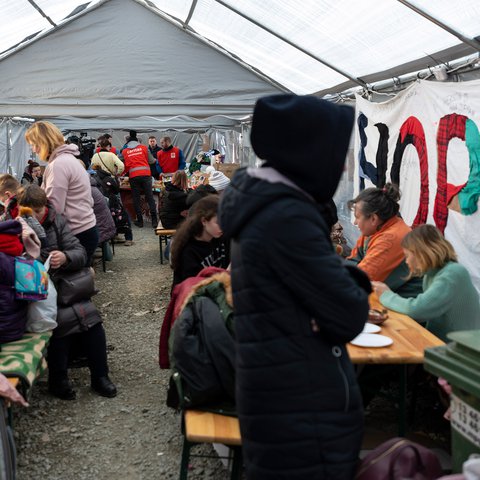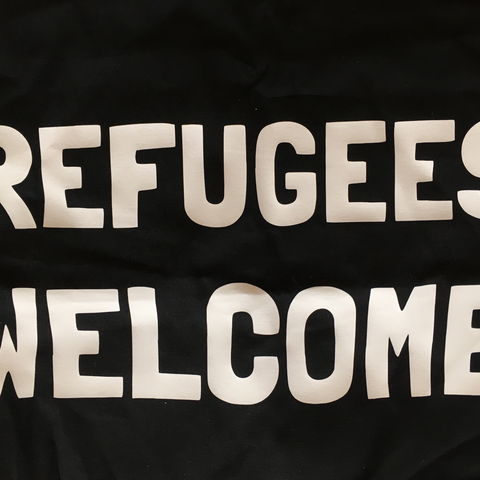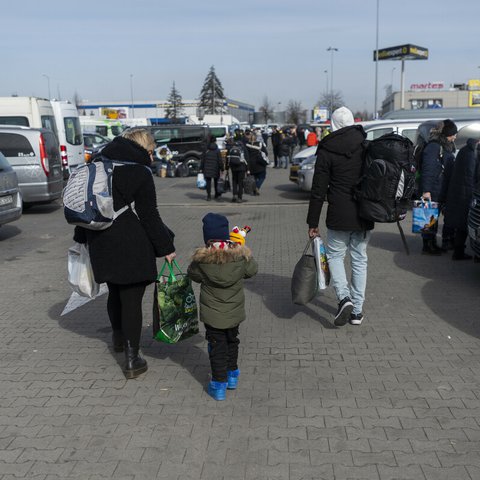The ‘Refugee Ban Bill’ has passed, but the UK is still a country that cares
The passing of the Illegal Migration Bill, dubbed the 'Refugee Ban Bill', chips away at the principles of a fair asylum system and is another example of the UK leaving its international obligations at the door.
The Refugee Ban Bill
In the late hours of Monday 17 July 2023, the government’s Illegal Migration Bill passed its final stages in parliament.
Despite widespread resistance from campaigners, activists, organisations and cross-party politicians, the bill, which becomes an Act of Parliament today, will find its way onto the statue books.
The passing of this law chips away at the principles of a fair asylum system, will turn away people who need support, and is another example of the UK leaving its international obligations at the door.
Despite these challenging circumstances, there are many fantastic organisations and activists that continue to fight for the right of people to seek safety.
What is the Refugee Ban Bill?
Dubbed the “the Refugee Ban Bill”, the contents of this law may unfortunately live up to its nickname.
It hands vast powers to the Home Secretary to detain and remove anyone entering the UK via irregular routes, irrespective of how strong their claim to asylum.
Although the government accepted small changes that make the law a little less extreme, it remains an alarmingly draconian piece of legislation.
Detaining, deporting and criminalising refugees will add to the uncertainty of those fleeing war and persecution. It will do nothing to “stop the boats”, one of the Prime Minister’s five pledges, and it undermines the UK’s obligations under international law.
Let’s call it what it is – an asylum ban, as the UN has rightfully labelled it.
In the context of instability across the globe, in which most of the world’s refugees are hosted by lower-income countries, turning away people seeking asylum at such scale also hollows the UK’s international reputation.
A country that cares?
There is no question that the UK has become more insular this week because of this new law.
This didn’t happen overnight; rather, it is part of a broader shift away from global responsibilities, which has included hammer blows to the UK aid budget and the gutting of development expertise as a result of abolishing the Department for International Development (DfID).
Last year’s Nationality and Borders Act, an earlier assault on the UK asylum system, is yet another product of this trend.
Simply put, backsliding on our obligations to the rest of the world has become a mainstay of recent British politics.
But, just as the government turns its back on people seeking sanctuary, the support and solidarity that has been shown from across the UK has never been so clear.
Paying tribute to those campaigning for refugee rights
Oxfam pays tribute to the numerous organisations and activists that have campaigned tirelessly for the rights of refugees and against the dismantling of the asylum system.
From Asylum Aid’s legal challenge to parts of the bill, to coalition efforts led by Liberty, which have included a solidarity statement with an impressive 290 signatories.
The statement not only brings together refugee, migrant and human rights sectors in opposition to the law, but is also supported by health, housing, environment and international development organisations and more.
Although Asylum Aid and Liberty are two prominent organisations among many, Oxfam knows well from its own work that the strength of social movements depends on a mosaic of smaller actors that include community groups, women’s groups, and faith organisations.
Students, including those behind the wheel of Oxfam student societies, also find creative ways to express solidarity. There are many hundreds of groups across the UK that all play a vital role in showing that refugees are welcome, even if government policy suggests otherwise.
Business has a role to play too. Many refugees have a high level of skill but can often struggle to access jobs due to discrimination or bureaucratic hurdles. The contribution of companies such as M&S, which recognise these challenges and commit to helping refugees overcome them have become a necessary part of the UK’s support architecture.
Shop of Sanctuary
Oxfam’s shop network is honoured to create safe spaces for refugees in our local communities. Oxfam’s ‘Shop of Sanctuary’ award has been handed to Oxfam Tooting for its Friday morning ‘Sewing and Sanctuary’ group which brings refugee women out of isolation through a love of craft and second-hand style.
Many refugees and asylum seekers also volunteer with Oxfam and make an important contribution in doing so – both to communities across the UK, and our work toward a world without poverty.
Beyond the Bill
Although the Refugee Ban Bill has become law, it doesn’t mark the end of the road for protecting the rights of refugees or the principles of a fair asylum system.
The passing of this law is likely to lead to more legal challenges, as parliament’s own committee on human rights has suggested.
The case for safe and legal routes for those who need protection, to prevent people resorting to dangerous journeys, has also never been so clear.
Oxfam stands in unwavering solidarity with refugees and all those who show the UK is a country that cares. Their work is crucial in the fight against injustice and in building a radically better world.
More posts like this

All of us can speak out for an end to armed conflict and injustice. Together we can call for world where no one is left behind, power is shared fairly, and we’re all held to account.

29 Apr 2022
The passing of the Nationality and Borders Bill this week has dealt a devasting blow to refugees. Our action to stand together remains vital to build a welcoming Britain.

18 Mar 2022
The Nationality and Borders Bill is on the verge of being made law. Unless crucial changes are made, it could spell misery for people fleeing war, persecution and violence.
